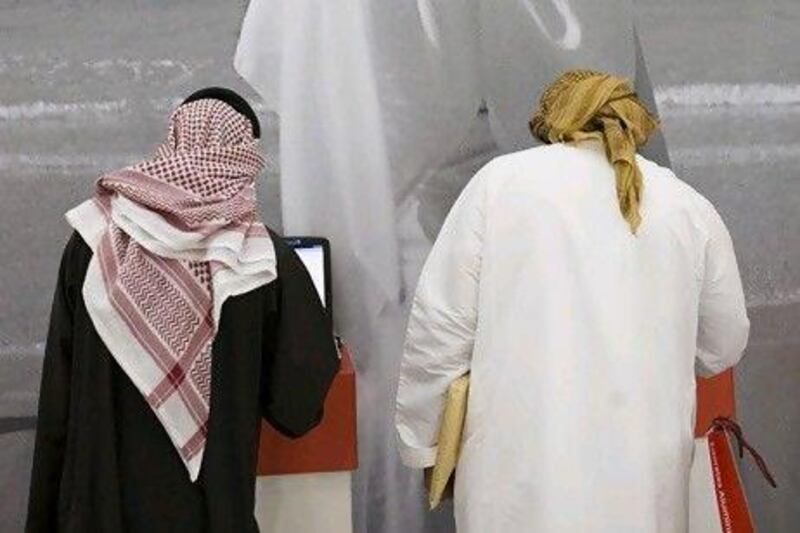Salaries in the UAE rose by an average of 5 per cent over the past year, with Emirati graduates, who take home up to Dh32,000 (US$8,710) a month, commanding a premium over their expatriate counterparts.
Editor's Pick: The big business stories making headlines today
UAE plane fares to get cheaper as competition ramps up Competition between airlines flying out of the country in increasing, as carriers and the number of flights continue to grow. read article
Middle East online users cite lack of trust for not buying via the Web A lack of trust in payment systems is cited as the main reason why just 6 per cent of Middle East internet users shop online. Read article
Wage increases have outpaced inflation, thanks in part to companies in the Emirates easing pay freezes, according to research by the management consultancy Hay Group.
"More organisations are giving out these increases compared with previous years," said Vijay Gandhi, a regional director at Hay. "Organisations are also moving away from promotion freezes."
However, an increase in the number of new positions in the UAE job market means that new recruits now get paid 6 per cent below the market average, according to Hay. Mr Gandhi said 37,000 people were recruited this year, primarily in sales and marketing roles, compared with 25,000 last year.
"This new wave of recruitment can be attributed to an improvement in business performance on last year and because new recruits can be sourced at below the average market rate," he said.
One exception to this is the pay rates for new Emirati graduates, who typically earn between Dh25,000 and Dh32,000 in Abu Dhabi, and Dh16,000 and Dh22,000 in Dubai, according to the research. That represents a premium of up to 80 per cent on their expatriate counterparts, said Mr Gandhi.
"The pay gap is wider at the graduate level," he said. "It's 50 per cent in Dubai, and 70 to 80 per cent in Abu Dhabi."
However, later in their careers Emirati nationals typically earn just 4 to 5 per cent more than expatriates, bringing the average wage premium commanded by UAE nationals to 33 per cent, according to Hay.
A government drive for Emiratisation, with its various incentives and quotas for the employment of UAE nationals, is one factor behind the higher pay rates, said recruitment experts.
"It is part of a general policy of the state," said Panos Manolopoulos, a vice chairman at the recruitment consultant Stanton Chase International in Dubai.
Mr Manolopoulos said that a lack of qualified Emiratis in specialist areas such as banking, finance and IT was driving up salaries in those sectors.
"There are not too many people to fill the positions, which means they have to pay higher," he said.
However, he said Hay Group's claim that Emirati employees earn on average 33 per cent more may be unrealistic.
"I think that's a little bit of an exaggerated number," said Mr Manolopoulos. "My feeling is that we have 15 to 20 per cent higher average compensation."
The Hay report analysed salary information for more than 200,000 employees in 488 companies in the UAE.
Workers based in Abu Dhabi were found to earn an average of 20 per cent more than those in Dubai, although the pay gap between the two cities is narrowing, the report found.
Low pay was seen as one factor behind the recent unrest in countries such as Egypt and Tunisia. Living conditions, salaries and employment levels in some other Arab states have came under scrutiny in the wake of the unrest in North Africa.
Wages in the GCC states are comparatively higher than those in most other parts of the region. Qatar surpassed Luxembourg as the world's richest nation last year, with a GDP per capita standing at $88,221, according to IMF data released last week.
Yet despite the relative wealth of the UAE, the Emiratisation drive - designed to lure more nationals to work in the private sector - is now "more important" in the wake of the Arab Spring, said Mr Manolopoulos.





